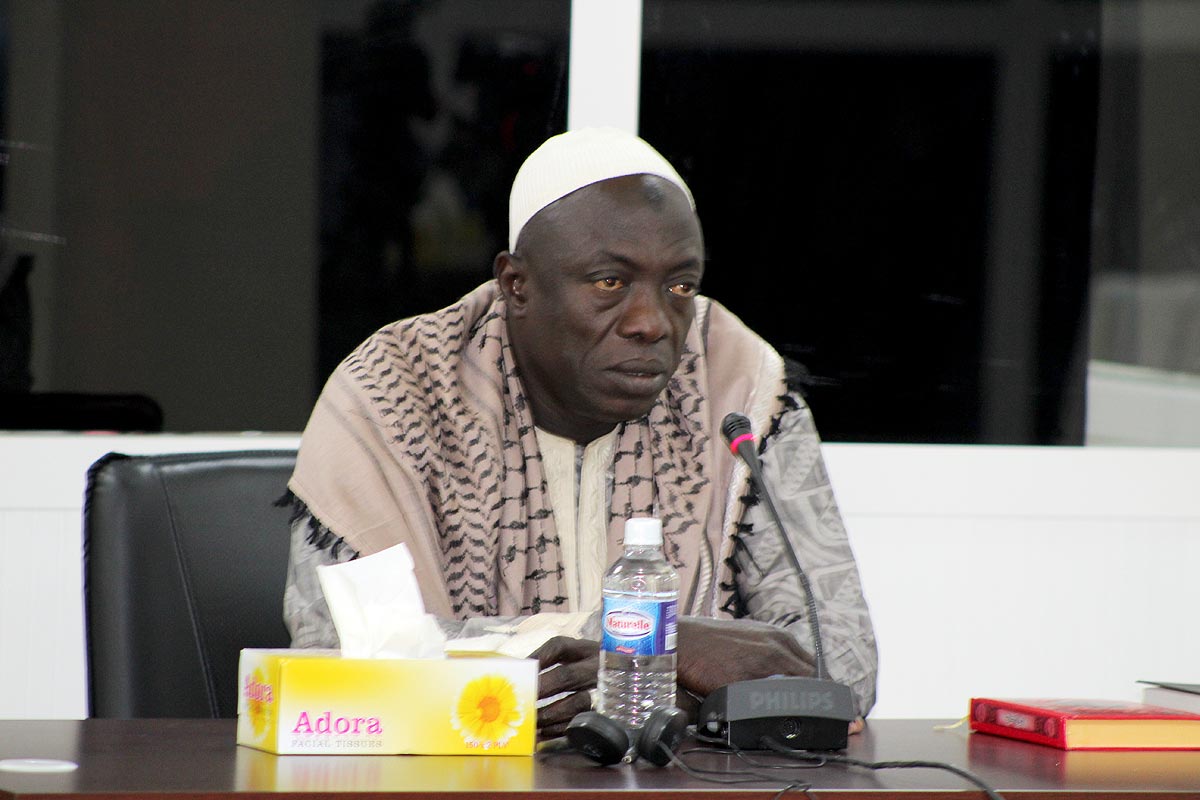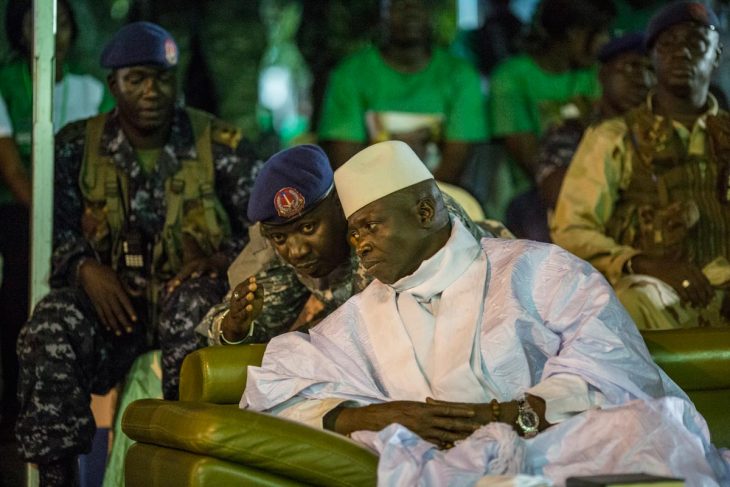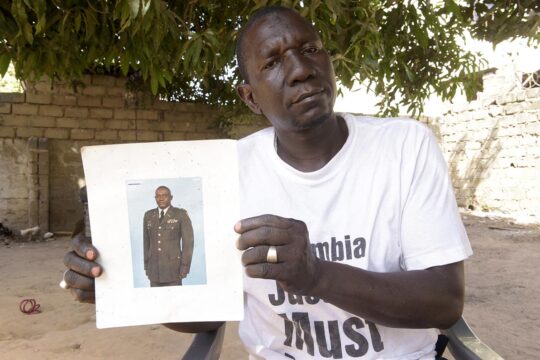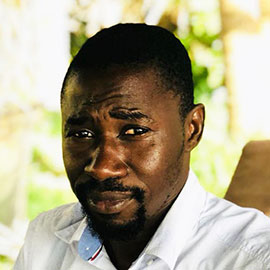Since Gambia’s Truth, Reconciliation and Reparation Commission (TRRC) began its public hearings, Yahya Jammeh’s name has been kept out of the narratives, despite shocking tales about brutal killings of his perceived enemies. Though he was the leader of the military junta that ruled the country between 1994 and 2016, it is the vice-chair of the Armed Forces Provisional Ruling Council (AFPRC), Sanna Sabally, who has been mentioned as calling the shots in the early executions under the regime.
This narrative has begun to shift in the latest hearings. And the key actor in this shift is Demba Njie, Jammeh’s former chief of staff, who testified before the TRRC.
Njie said he was with Jammeh on November 11, 1994, when the junta is accused of having killed close to two dozen soldiers allegedly involved in planning a coup. Jammeh appeared nervous and moving up and down the stairs at the country’s seat of power, the State House in Banjul, said Njie. At the time, the eccentric leader had already heard of the plot and “his men,” as he referred to them, were advancing on the country’s biggest camp, the Yundum barracks.
“Kill them all”
Njie recalled that, at 6 a.m., a call came and the order from Jammeh, sitting on a separate couch about three meters away, was clear: “Kill them all, the ring leaders.”
Njie broke into tears before the nine commissioners and looked down on the table. He was a lieutenant in the army before the July 1994 coup. The coup had brought him into the State House as both chief of staff and commander of the State Guard battalion but he couldn’t forget that day. “I heard Yahya Jammeh say kill all the ring leaders and that I did not forget. I realized that they had arrested some people and they were going to kill them,” said Njie, crying. “This was the first time I heard an instruction to kill.”
November 11, 1994 is described as the darkest moment in Gambia’s military history. The Commission dedicated a special section of its hearings to this event. And as testimonies are gathered, it is becoming clearer who participated in the killings, how it happened and why. According to Sait Darboe, a private who fought on the side of the coup leaders in July 1994, a large section of the army became disgruntled because of the betrayal of the agenda of the coup by the leaders. This version of the story was confirmed by other witnesses including Lieutenant Binneh Minteh, one of the organizers of the November coup who later fled to the United States after it had failed.
“I would say they [the junta] failed us. I remember Edward Singhateh told us that we were going to be promoted and have a plot of land,” said Darboe, the Commission’s 20th witness. Described by many as a “sadist”, Lieutenant Singhateh was one of the leaders of the coup. He later became the vice-chair of the AFPRC. “And nothing had been done,” continued Darboe. “We got frustrated. We were the men who fought for them. Those who supported the coup were not up to forty soldiers. Most of us were junior soldiers.”
This frustration was what precipitated the November 11 coup attempt.
The confession of Alagie Kanyi
The junta, however, had already learned of the plot and they attacked the Fajara and Yundum barracks, where the “counter coup” was conceived. They captured the two camps, arrested the coup leaders before they even started it, and executed them. “They were butchered. They killed them nastily. I saw dead bodies and they were killed with bayonets,” said Sait Darboe. On that fateful day, Darboe was at the Yundum barracks from 8 a.m. to late evening. He had pledged his loyalty to November 11 coup leaders but this was not known. Thus he was never arrested.

However, one person who was arrested but managed to live was Abdoulie J. Darboe. When he testified before the TRRC, Abdoulie Darboe named Edward Singhateh and Alagie Kanyi among those killing the soldiers. Before the Commission, Alagie Kanyi – nicknamed by his tormentor “mofala Kanyi”, meaning killer – became the Commission’s first witness confessing to killing. He confessed to opening fire at Basiru Camara and Fafa Nyang on two soldiers who had been arrested and taken away in a green Land Rover, with their hands tied from behind. At the execution ground Kanyi said Sanna Sabally would arrest anyone who wouldn’t do what they were instructed. “I am instructed to kill my own brother and at that point I don’t have a choice,” said Kanyi.
Kanyi said they were standing in an extended line and so were the soldiers who were about to be executed. “Sanna Sabally said: “Say your last prayers.” Buba Jammeh [one of the killed soldiers] said: “Don’t kill us, take us to jail.” Sanna gave an order to fire and we fired on them,” said Kanyi. “The firing was rapid and each person was hit with multiple bullets.” Five soldiers were killed there.
The murder of the Finance Minister
According to Kanyi’s testimony, senior members of the junta present at the execution were Lt Yankuba Touray, Lt Sadibu Hydara, Lt Edward Singhateh, Lt Peter Singhateh, and Colonel Babucarr Jatta. As Kanyi testified in the small hall of about 8 by 8 meters, his brothers were seated in an audience of about 20 people. Some of Kanyi’s relatives were in tears.
Kanyi admitted participating in three main execution events, of which one was the execution of the country’s former finance minister Ousman Koro Ceesay. In June 1995, Ceesay was killed by state operatives allegedly led by Edward Singhateh. Kanyi testified that they killed Ceesay at the Kololi residence of Yankuba Touray, one of the military leaders. Ceesay was beaten with pestle and sticks until he finally died. He would later be found dumped in a wrecked car set ablaze.
This is another crime in which Demba Njie, the former chief of staff of Jammeh, has implicated the former ruler. And Kanyi’s story corroborated the testimony of Njie who claimed the orders came from his former boss, Jammeh.
Kanyi’s story corroborated the testimony of Njie who claimed the orders came from his former boss, Jammeh.
Ceesay was killed while Jammeh was away in Ethiopia but Jammeh was seen discussing with his vice-chair, Edward Singhateh, at the Banjul International Airport, prior to his departure in “unusual circumstances,” said Njie. Njie was then with Jammeh in Ethiopia. He said Jammeh never said a word about the death of Ceesay. “A state minister died under such circumstances and Jammeh never mentioned his name to me,” Njie said. According to him, a former state guard commander, Lang Tombong Tamba, called him while he was in Ethiopia to tell him that his friend the minister had been killed. “He told me there was foul play,” said Njie. With his testimony and that of Kanyi, the evidence given before the TRRC has never got closer to the former head of the military regime, who is in exile in Equatorial Guinea.







